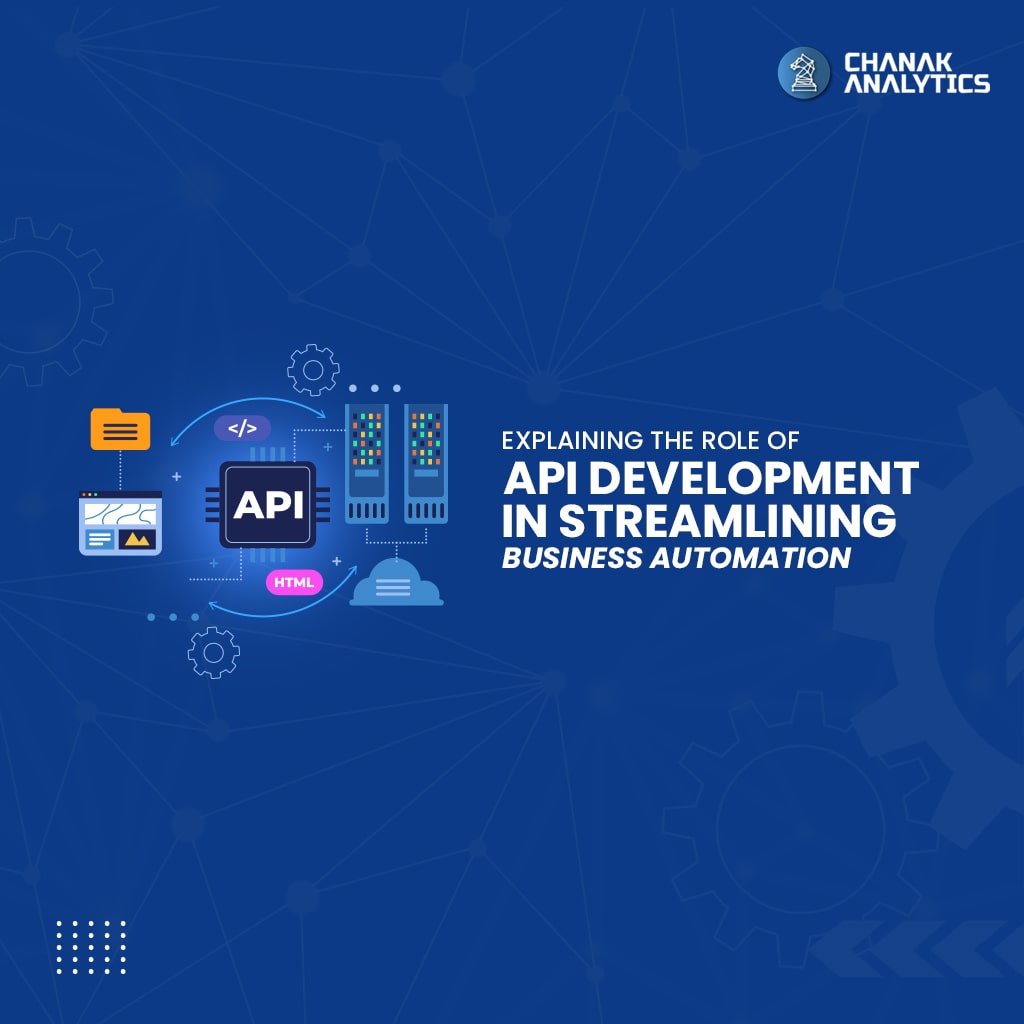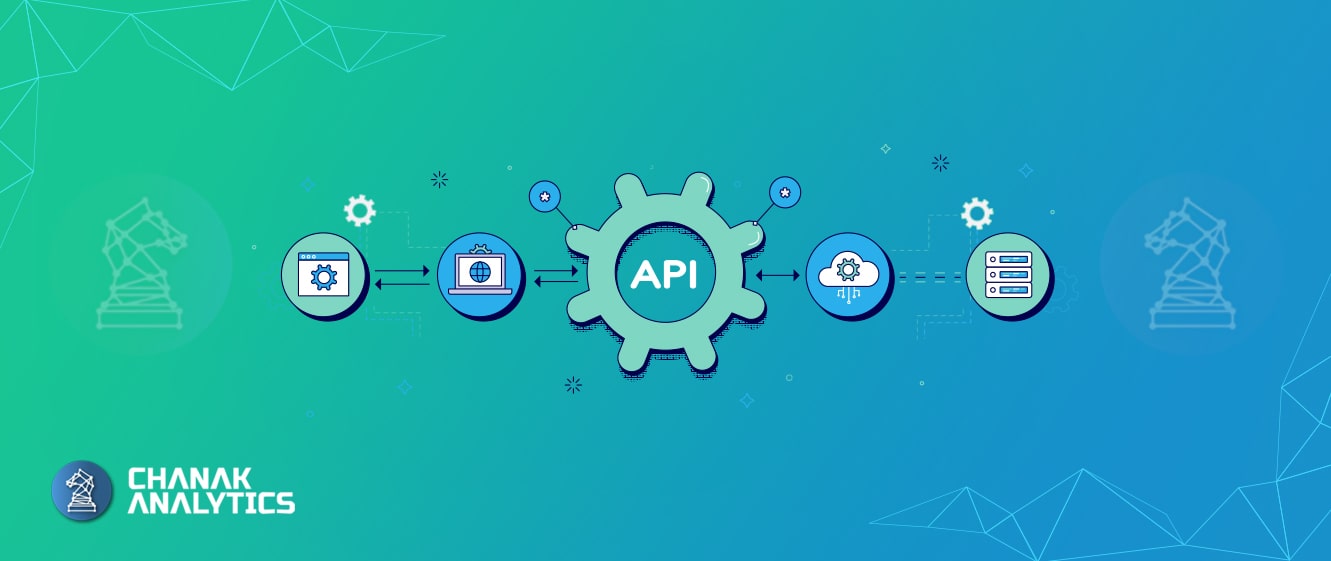Explaining the Role of API Development in Streamlining Business Automation


API, or Application Programming Interface, essentially develops a way through which different software programs can communicate. Think of it as a language that allows apps to effortlessly share and use information.
Developers craft APIs for applications to seamlessly request actions or exchange specific information. For example, when you log in to an app using your Google or Facebook account, that’s done through APIs. They act like connectors between the various digital components. The API process ensures that the tasks are done quickly and with ease!
The Crucial Role of APIs in Business Automation
In today’s digital world, APIs take on the role of translators between different applications. It can be a make-or-break aspect of business workflow software.
Why are APIs Important?
- Simplify Tasks: APIs automate repetitive tasks, cutting time and effort.
- Data Sharing: They enable communication between apps so that information is accurate and consistent.
- Cost-Efficiency: Using APIs reduces operating expenses by simplifying processes.
- Scalability: APIs make it easy for businesses to expand and change their operations.
In a nutshell, APIs are the magic behind modern IT process automation software. It makes processes smoother, faster, and more flexible to dynamic needs.
Key Benefits of Implementing API Development
Implementing API development has a lot of advantages. It can simplify business processes and improve efficiency.
• Enhanced Functionality
With APIs, developers can add new features to existing applications without the need to start from scratch. This saves time and resources.
• Faster Development
Developers can make the application development process faster with the use of APIs. This helps save time during development as they can reuse existing code and functions.
• Consistency and Reliability
APIs remove the risk of human error. API automation provides dependable results by exactly recreating test scenarios. It allows developers and testers to find and address errors quickly.
• Improved User Experience
APIs provide a more consistent user experience. API honours the importance of business processes. This ensures that data sharing is safe and the user journey is more fluent.
• Increased Innovation
Using APIs, developers can access new tools, services, or data. This promotes creativity and innovation in application development and business automation.
In a nutshell, using API development makes integration easy and super quick! It finally boosts the effectiveness and usage of software applications.
How Does API Development Streamline Business Processes?

Have you ever wondered how businesses seamlessly link various tools to systems? The superhero behind streamlined business processes is API development. APIs are digital translators that allow various software and systems to talk to one another. How does that help businesses?
• Eliminate manual work
APIs essentially speed up business processes! When you begin to consider automation within your organisation, consider all of the little jobs that occur daily, such as building spreadsheets, managing documents, sending emails, and scheduling meetings. APIs can help you save time and relieve a lot of stress!
• Customised Solutions
Businesses can develop custom integrations for their specific needs with the help of APIs. They can use a hybrid workflow as well. It will combine different tools and systems for software development.
• Effortless Communication
APIs allow the sharing of information between different apps in different software. This means that the sales system can communicate with the inventory system without any difficulties.
• Enhanced Productivity
Employees spend less time on repetitive tasks with the implementation of API development. This allows them to focus on more productive activities.
What Impact Does API Development Have on Business Automation?
• Payment Processing
APIs help companies link their website or app to payment systems like PayPal and Stripe. Automatic and secure payments are possible with API development when you purchase something online.
• Social Media Sharing
Have you ever seen a “Share on Facebook” or “Tweet this” button somewhere on a website? These are applications that employ APIs to post content on social media. It saves you the hassle of copying and pasting content one by one.
• Email Marketing
Businesses use APIs to automate email marketing campaigns. They connect their customer database to email platforms. Now, when someone signs up, they automatically receive welcome emails or newsletters.
• Inventory Management
API development helps automate inventory updates. When you buy something online, the inventory system is automatically updated with no-code automation tools to reflect the new stock levels.
• Customer Support Chatbots
Those helpful chatbots on websites? They use APIs to access information from databases and provide instant responses. The role of these chatbots is to answer common customer queries without human intervention.
• Travel Booking
APIs fetch and display real-time information for travel websites in an instant! When you search for hotels or flights on a website, APIs showcase the prices and availability within seconds.
Business operations become smoother and more efficient with APIs automating tasks such as payments, social sharing, emails, inventory updates, customer support, and travel bookings.
Best Practices for Superior API Development
A couple of best practices for developing APIs can make a world of difference in the overall experience of the software.
• Clear Documentation
Keeping things simple is key. Strive to have clear, readable code that is convenient for other developers. It’s like writing simple instructions for a game; everyone should be able to understand it without thinking too much.
• Security measures
Security is non-negotiable. Treat your API like a treasure chest! Proper authentication and encryption are very important. It protects data from sneaky cyber threats.
• Version control
Like keeping different drafts of a story, keep track of changes. It gives everyone who is involved a chance to know what has been updated or what is new.
• Consistent Naming Conventions
Keep it simple when naming things. It’s almost like having a universal language for everyone working on the API. Names should be straightforward and logical. Simple names help everyone understand what is going on with ease.
• Testing at Every Stage
Test your API as if you’re preparing to submit your work to colleagues. It ensures everything works as planned.
• Feedback and Improvement
Just like improving a recipe based on feedback, keep improving the API by listening to users and making it better and better over time.
Tools and Techniques for API Development

• API Documentation Tools
- Swagger/OpenAPI: Makes writing and documenting APIs easier, so developers can readily understand them.
- Postman: Enables API testing and facilitates communication among development teams.
• API Design Tools
- RAML and RAML-based tools: It helps design the APIs in a structured way. These code-testing tools help in visualising their architecture as well.
- API Blueprint: Simplified markup language for easy-understandable, easy-to-write API documentation.
• API Testing Tools
- JUnit/TestNG: Support unit testing for APIs, checking the proper functioning of individual units before integration.
- Newman: Enables continuous testing of the API during development.
• Version Control Tools
- Git: It assists in change management and version control of APIs. It can finally ensure a seamless development experience with collaborative benefits.
• Code Editors and IDEs
Visual Studio Code, IntelliJ IDEA: Makes API code writable, debuggable, and manageable.
• Techniques for API Development
- RESTful Principles: Design APIs that are simple and can scale using REST principles.
- Mocking and Virtualization: Use tools like WireMock to mock API responses, allowing development even when the actual API is not yet in place.
- Continuous Integration/Continuous Deployment (CI/CD): Include API development into CI/CD pipelines for automated testing and deployment.
The developers can use these tools and techniques to develop, test, and deploy robust APIs that fit the business needs.
Navigating Challenges in API Development
Although building APIs may look like magic, it is a process that has many difficulties. The biggest hurdle? Ensuring these digital messengers run smoothly for everyone. Here are some key challenges in API development:
- Security Concerns: Data should be safeguarded while being transferred. It is very important to secure the API from cyber threats.
- Maintaining Compatibility: Maintaining API compatibility as systems evolve is tricky. Careful planning is necessary throughout the execution.
- Managing Updates: It is a balancing exercise to update APIs without disrupting the existing users. It is important to make sure that the changes are seamless.
- Handling Traffic: It becomes a challenge to manage the increased traffic as more users use APIs.
Getting over these barriers makes sure API remains dependable, safe, and hassle-free.
Unlocking The Potential of APIs: Services and Solutions
In this era of digitalization, APIs (Application Programming Interfaces) make it possible to interlink apps, websites, and systems. Through API development services, businesses can easily develop, manage, and optimise APIs. Such services include API design, documentation, testing, and deployments. With these solutions, companies will be able to integrate their software easily, improve the user experience, and increase productivity. With the adoption of API development services, businesses can adapt, stay competitive, and meet changing customer demands while spurring innovation in the digital age.
Join the community
Join our 400,000+ person community and contribute to a more private and decentralized internet. Start for free.


